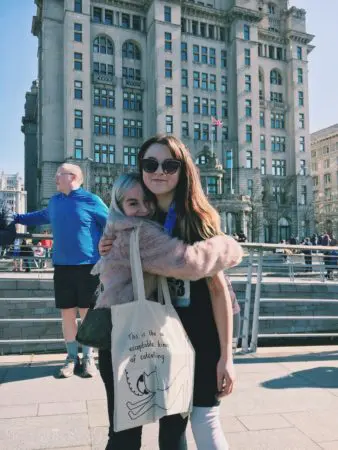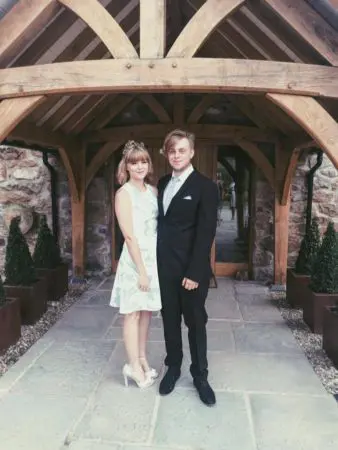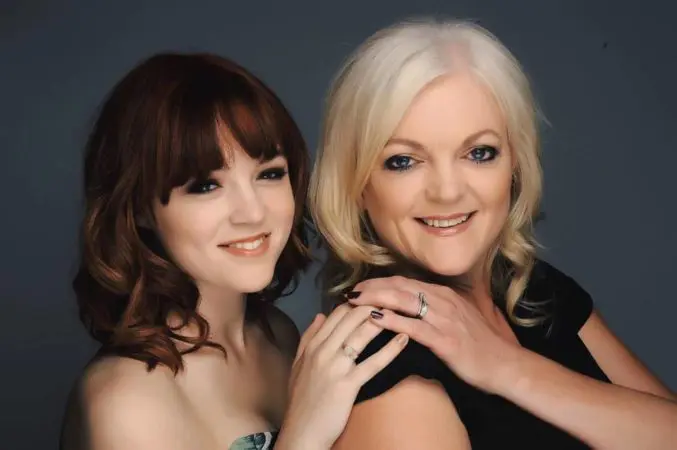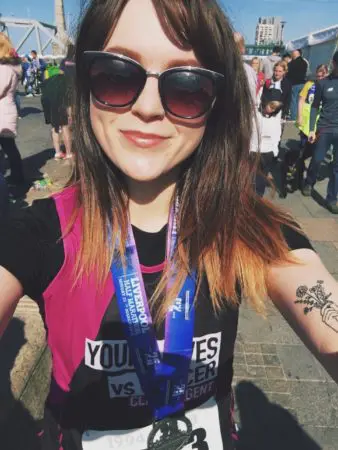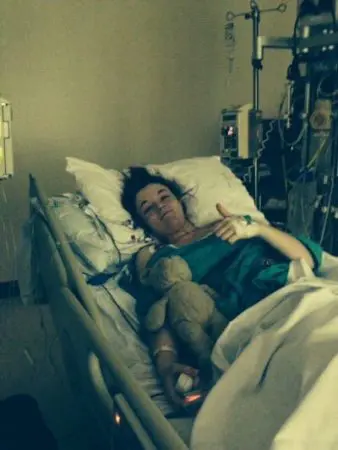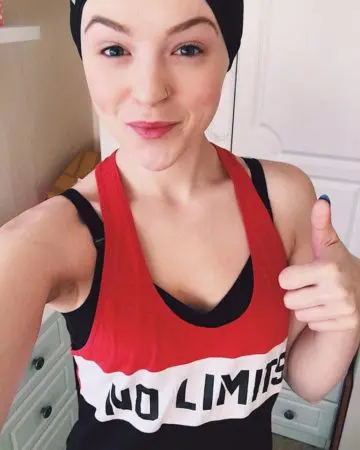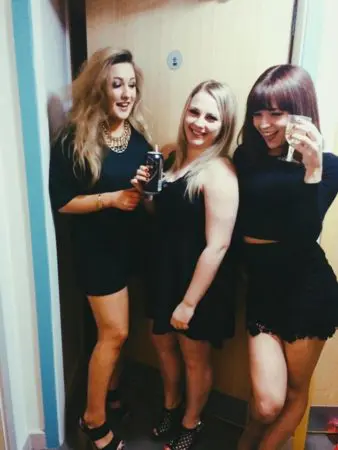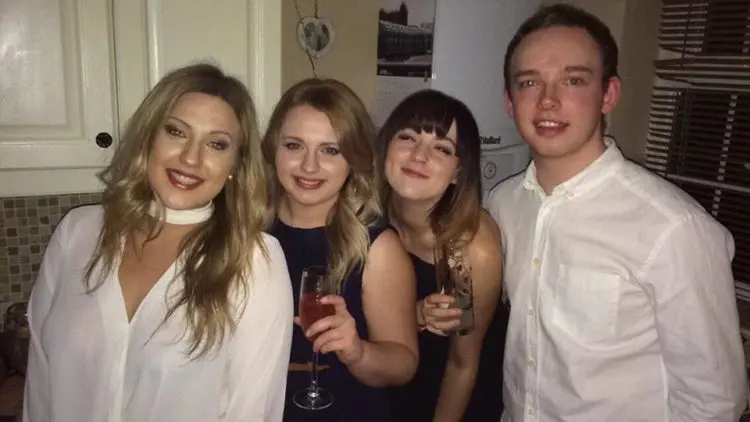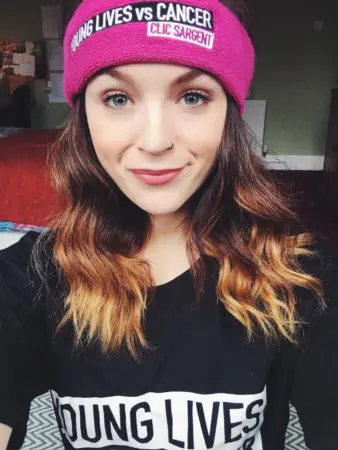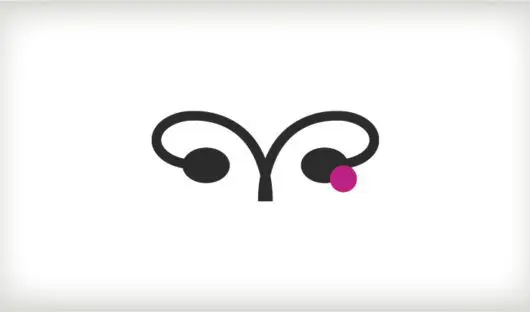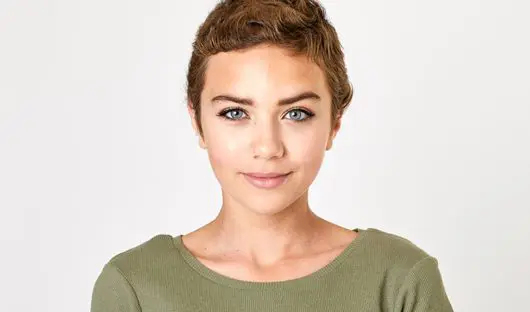Seren’s story – diagnosed with ovarian cancer aged 19
Seren started feeling unwell during her first year at university and thought it was due to going out too much. She started going to the gym and eating better but saw no improvement. Following a blood test, Seren was urged to go to A&E. At first doctors thought it was a burst appendix, but then found a cyst on her ovary. After having surgery to remove her left ovary and fallopian tube, she was told cancerous cells had been found and underwent chemotherapy. Seren tells her story.
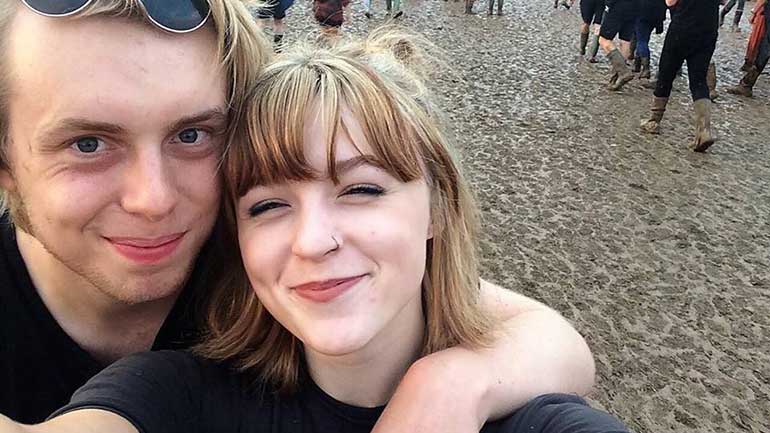
Seren and her boyfriend Josh at a music festival in 2016
“I was in my first year of uni in Manchester, roughly late January or early February, when I noticed that something wasn’t quite right. As a student, I thought it was just that I had been going out too much and was a bit run down. I’ve always been a bit health conscious so when I noticed that I’d put a bit of weight on my stomach I started going to the gym more and cutting down on bad food to try and shift it.
“A couple of months later there didn’t seem to be any improvement so when I was at home in Wales one weekend I went to the doctor and had a blood test. I had the test on a Monday before going back to uni. The next day I had a call from the doctor who told me that I needed to go to A&E straight away as my CA125 levels were really high. I had no idea what that meant and didn’t understand why it seemed so urgent. I wrote it down on a post-it note and asked one of my housemates to come with me to A&E.
“At the time, I was so focused on other things that I was supposed to be doing, like going to a gig that night. I even asked the doctor if I’d be out in time to go, but they said no.
“At first they thought that it was a burst appendix and told me that I would need to have emergency surgery after a scan. The surgeon was telling me all about what surgery they were going to do, they were so adamant that was what was wrong.
“After the scan, they said that actually it was a cyst on my ovary. It was now early March and I had been in the hospital for about a week. My stomach was growing pretty fast, it was huge like a rugby ball at this point.
“While I was in hospital the mass was growing around my stomach and the rest of my body was losing weight very, very quickly as I wasn’t eating – I lost two stone over three weeks. It was only when the tumour was removed and the scar had healed enough for me to get up and weigh myself that I realised how skinny I had become.
“They told me that they needed to do surgery to remove whatever it was inside me – they couldn’t tell me before the results of the surgery whether it was cancerous or not. The surgery involved removing my left ovary and fallopian tube. I was in Christie’s (Christie Hospital in Manchester) intensive care for a few days before going back to the oncology ward for a day and then I was sent home.
“It took about two to three weeks until I could go back and find out the results, so it was in April 2015 that I was told they had found cancerous cells. I didn’t know what that meant, but my mum and dad burst into tears while I was just asking lots of questions about what was going to happen next.
“I started chemo at the end of May and had carboplatin every three weeks from May until the end of August. The first couple of times I had chemo I seemed to be fine as I had steroids as well as anti-sickness tablets before, and then the treatment only lasted for about an hour. I felt really lucky that I was only there for an hour, not days like other people. Towards the end of the sessions I took it quite bad and felt unwell a lot of the time. I ended up getting tonsillitis and they nearly didn’t let me have the last chemo.
“I was really determined to get through that period and planned loads of things for once the chemo was over like a big family BBQ and going to Download festival with my friends. The doctors ended up giving me immune boosters just so I could go as I didn’t want to miss out.
I really struggled with ‘chemo brain’, just forgetting stuff a lot of the time, which annoyed me a lot."
“That stayed with me until I started back at uni in the September really, but they were quite good and have a good support plan for me, like more time for submitting assignments.
“The sickness feeling was awful, it was like a three day hangover after having treatment. I have a bit of a phobia of being sick as well, so that was one of the worst things. I was also anaemic for a while, but that seems to have calmed down now.
“Because I was at uni in Manchester when I was diagnosed and being treated there, it was quite a way for us to travel for the treatment as I decided to drop out of uni for a while and go back to be with my parents in Wales. I came home in between the chemo treatment and when I was in hospital my mum stayed with me the whole time, we were really lucky that there was a bed for her. My dad came back and forward, it was two hours there and back every day which was quite costly for him.
“CLIC Sargent was the first charity I came in contact with when I was diagnosed. I had a social worker, James, who I met with and he helped us to apply for a grant and for PIP. There was a lot of paperwork involved so it was amazing to have someone who helped us to do all of this.
“Because I was at Christies in Manchester and North Wales, we were also assigned Rachel who helped my mum with various things and tried to help me with meeting more young people so I could talk to other people going through a similar thing. Rachel told me about the Young Person’s Reference Group and CLIC Sargent’s Team Young Lives Facebook group, so I managed to connect with people who were in the same situation.
“I’ve been messaged about a lot of opportunities since joining the Facebook group and being part of the YPRG – I was part of a staff induction and also took part in Takeover Day which was a lot of fun.
“The opportunities you get with CLIC Sargent as a young person are amazing. None of my friends have had the chance to have presentation experience or build up their confidence in that way, so it has definitely given me some great skills I can use in the future.”
Get in touch!
CLIC Sargent is the UK’s leading cancer charity for children and young people, and their families.
To find out more about how we help young people cope with the impact of cancer, please visit our what we do section. If you need support yourself please contact us using our online enquiry form or call 0300 330 0803.
You might be interested in...
Posted on Monday 25 March 2019
